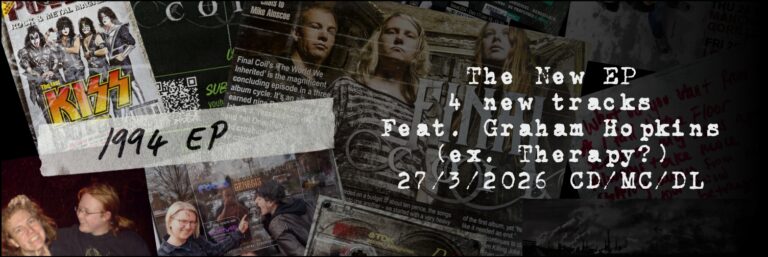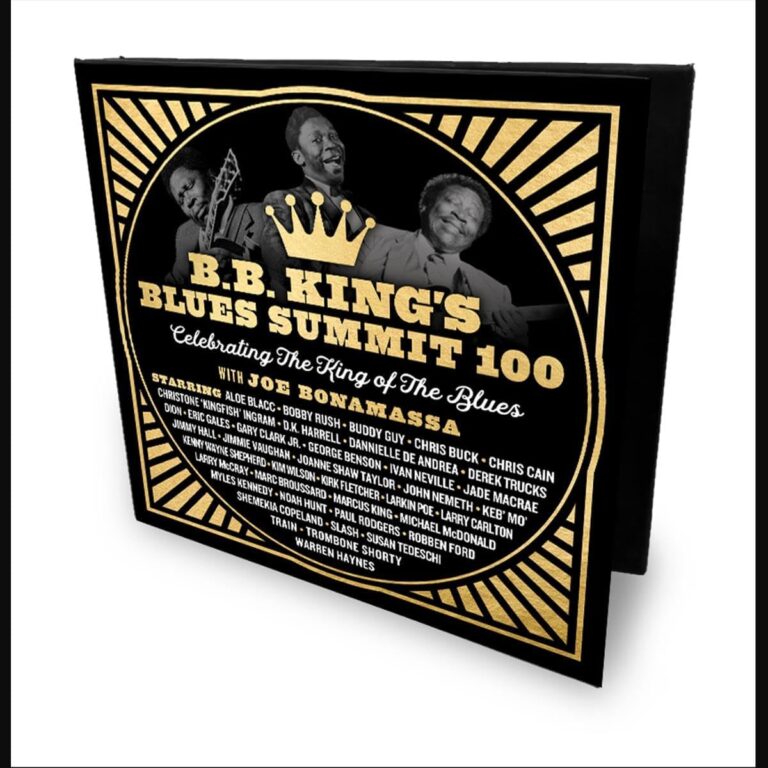
Conceived during lockdown, Stillpoint was recorded (Barrett tells us) at a time when he and his wife (Lisette Garcia) were living “in a cliff house overlooking the magnificent Strait of Juan de Fuca”. An album that also works as a soundtrack for Barrett’s third collection of short stories (Stillpoint: Reflections From A Year On The Cliff), Stillpoint is an album imbued with the sense of calm that comes from finding oneself alone with nature, away from the bustle of modernity and reflecting upon a lifetime’s experiences. Rooted in jazz, although aspects of ambient creep into the mix, the album draws upon Barrett’s inquiring approach to percussion, with the range of instruments he plays including Gamelans and Gongs to Brazilian and Cuban Drums and the Marimba; not to mention bass, piano and voice. The result is a lovely album that gently explores Barrett’s surroundings, inviting the listener to reflect over an imagined sunset, or witness untamed nature as hawks dive toward their prey.
The album opens with the rippling piano of Roaring Sea. While the name implies a certain fierceness, it is clear that The Roaring Sea invokes a certain calm in Barrett, who evokes the crashing of the waves with shimmering layers of gong. Meanwhile, Lisette’s subtle percussion provides a soothing backdrop for Dave Carter’s beautifully performed trumpet, and we find ourselves effortlessly transported to Barrett’s clifftop abode. We remain entranced for the Mancini-esque slinky shuffle of Juan’s Strait Swing. Underpinned by upright bass and utilising the vibraphone (previously put to good use by Barrett on Mad Season’s untouchable Above), Juan’s Strait Swing conjures images of an intimate gathering on the clifftop, for friends and family to watch the sun go down over the horizon, content in the calm of the surroundings and one another’s company. Interestingly, the spirit of Mad Season (or perhaps a reflection of just how eclectic that short-lived band truly was) can be found in the heady spirit of Please Come Back, She Said To The Sun, a glorious outpouring that sounds like it was a huge amount of fun to record. You can easily imagine Barrett and Lisette exchanging wide smiles during Dave’s frantic trumpet solo, and there’s such life to the performance that it’s impossible not to be drawn in. That same intensity remains on The Elegance Of Wind, a track built around South American percussion, combined with a certain, swampy, New Orleans feel that helps to introduce a certain sense of tension into proceedings. Befitting its title, Eagle Vs. Raven represents nature’s battle in a subtle manner that evokes the thrill of the chase, only occasionally allowing the violence of the altercation to spill over into Dave’s frantically trilled notes. In contrast, Waves Of Color recalls the world music experimentation of Peter Gabriel’s soundtrack work, Barrett and his band seemingly relaxing into the beauty of the myriad reflections sparkling within the cascading waves of the shoreline. It’s followed by the subtle palette cleanser, A Siren Calls, an enigmatic piece of music that seems to bring the first half of the album to a calm, if eerie, close.
Opening the album’s second half, the similarly short Yellow Striped Spirit Snake feels like an invocation with its hypnotic rhythms and wordless vocalisations. There’s a remarkable sense of atmosphere here, as if Barrett and his band have tapped into the living spirit of the earth, and it feels genuinely entrancing. A more human experience emerges on A Year On The Cliff, which has a sweet, early Miles Davis vibe to it. The tension first exhibited in the album’s first half spectacularly returns on Fierce Hawk. While the piano may soothe, the percussive elements inject a sense of hovering threat that is impossible to shake as the track progresses. In contrast, the whimsical shuffle of Pineapple Express is as comforting as an old friend, the metallic tones of the steel drum neatly offsetting the dynamic warmth of Dave’s trumpet work and the slinky bassline lurking just beneath the surface. A similar beat leads into Dance Of The Seven Sisters, which feels like a continuation of the previous track and the central part of a surprisingly propulsive second half. The visceral rhythms continue on the aptly named The Beauty In Darkness, a track that recalls the soundtrack work of James Horner circa 48 Hours, all rich, sliding bass and lingering piano chords. Like sitting on the porch at dusk with a glass of whiskey watching the fireflies dance and caper in the half light, there’s a feeling of infinite possibility lying just beyond your visual reach. With a greater emphasis on the wordless vocals previously noted on Yellow Striped Spirit Snake, Rainshadow feels like another invocation, paying tribute to the power of nature before the album concludes with the short, poignant To The Sea We Return, a brief lament as we leave the clifftop and return to the daylight, suddenly aware that nearly an hour has passed in the company of our own imagination.
The modern world is ablaze with activity. We are bombarded with media at almost every point of every day and it is tiring beyond belief. While, of course, Stillpoint is no more or less a form of media than a movie or a TV show, its gift is to bring a sense of the time and space Barrett and his wife experienced whilst living in a wild and dramatic part of the world; rather more isolated from modernity than many of us have the opportunity to be. The sonic equivalent of a postcard, it tantalises the listener with glimpses of a different world, and it is best experienced with the lights dimmed low and all other distractions put to the side. Records that stimulate the imagination are to be treasured, and to spend time with Barrett and his band is to emerge refreshed and somehow calmed. A truly beautiful flight of fancy, then, Stillpoint is an emotionally honest record, as vivid as any diary, and utterly immersive. 10/10



